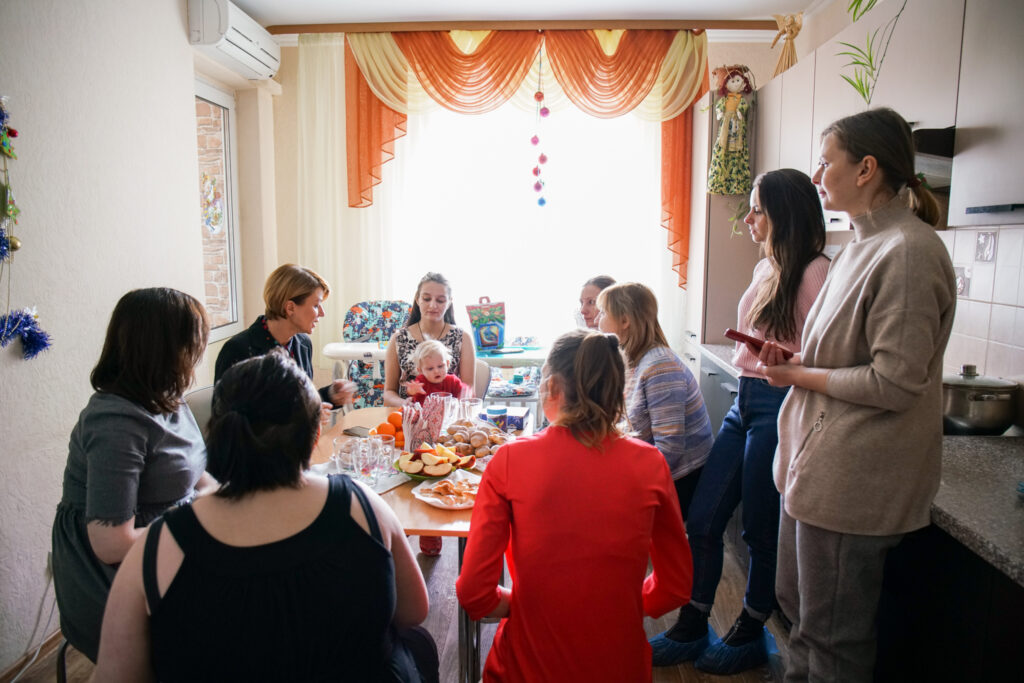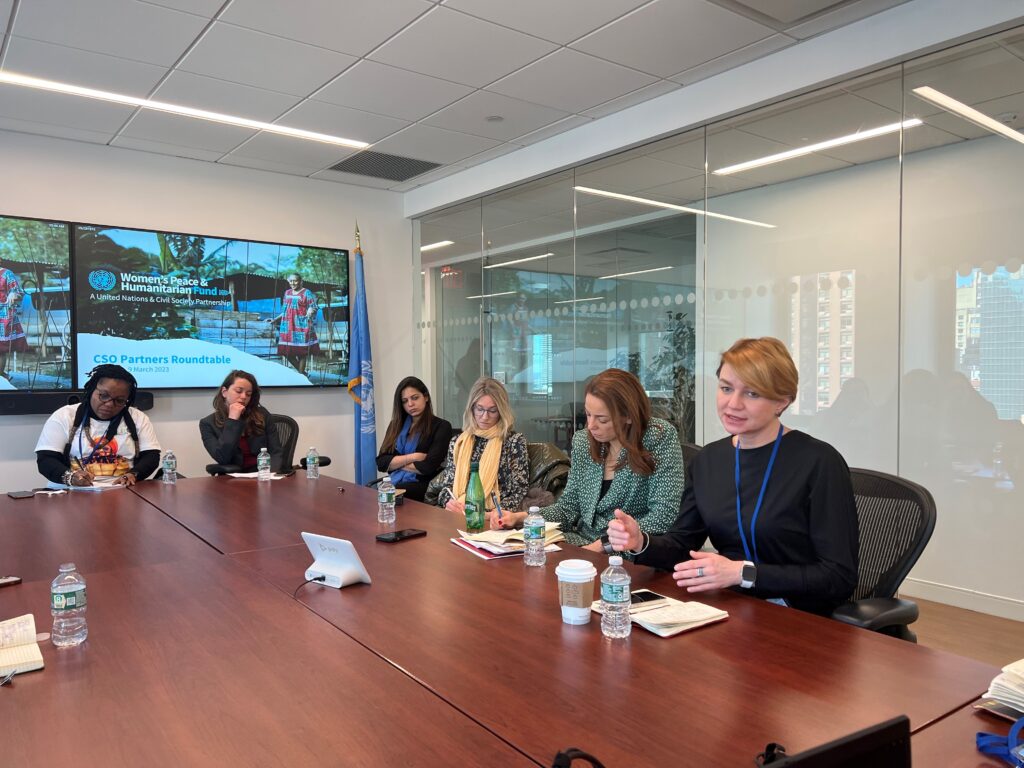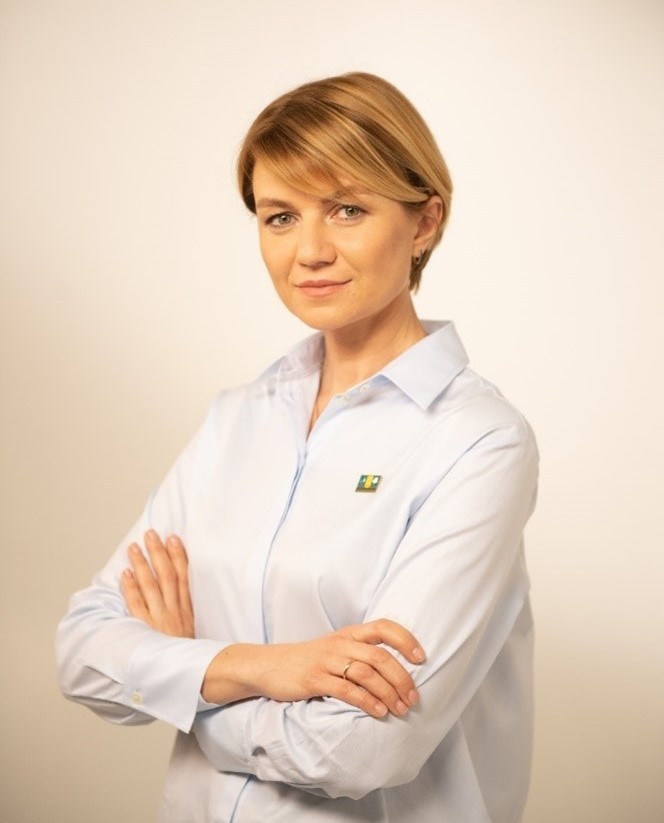“When the voices of women and girls are heard in decision-making spaces and their leadership is strengthened in local humanitarian action, results are guaranteed.”
Halyna Skipálska is the Executive Director of the Ukrainian Foundation for Public Health (UFPH), a national women-led organization supported by the United Nations Women’s Peace and Humanitarian Fund (WPHF) working to advance the fundamental rights of women and girls and ensure their access to quality social and healthcare services across Ukraine.
“For decades, I’ve been pursuing a big and ambitious goal: to make Ukraine a better country with zero tolerance to violence against women; a Ukraine where every woman is aware of her rights and can pursue her goals; a Ukraine where women live healthy and happy lives.”
Supporting the wellbeing of vulnerable populations, including pregnant women, single mothers and female-headed families, has always been at the heart of Halyna’s work with UFPH. However, things took a turn on February 24, 2022, when Russia launched its full-scale invasion of Ukraine, unleashing a humanitarian catastrophe and forcing millions to flee amid escalating violence and growing humanitarian needs. Since the early days of the war, Halyna and her colleagues started acting as first responders, providing essential supplies and health services in the most affected areas, advancing the protection of civilians, including women and girls; and offering comprehensive psychological support to internally displaced people across Ukraine.
“When the war broke out, we quickly adapted our programming and expanded our services for women and girls to meet the growing needs we were seeing around us. In a matter of days, we transitioned from being a development organization to conducting humanitarian work on the front lines.”
In response to increasing reports of conflict-related sexual violence and serious violations of women’s rights from different regions, Halyna partnered with WPHF to create a virtual platform, the SafeWomen Hub, aimed at raising awareness of these atrocities and provide mental health support services to displaced women and girls, survivors of sexual and gender-based violence (SGBV), and victims of human trafficking during the crisis.

Through crisis mobile teams, day centers and halfway houses, Halyna and her team are providing comprehensive psychosocial support and emergency humanitarian aid to those bearing the brunt of violence and displacement in Ukraine, including disadvantaged and at-risk women and children. Photo credit: UFPH/Halyna Skipálska
Launched in April 2022 – only two months after the outbreak of the war – in partnership with UN Women Ukraine, the Hub also sought to build the capacity of local women’s civil society organizations across the country working to prevent and respond to SGBV – supporting them to adapt to the evolving situation and enhance their ability to identify survivors. Over the last two years, over 13,000 war-affected women and girls have received assistance through the platform, which operates through social media (mainly Facebook, Instagram and Telegram) and can be easily accessed with a smartphone or a tablet – a critical element in emergency situations.
“If the war in Ukraine has proven anything, it is that civil society organizations are quicker, more flexible, better equipped, and more efficient than other national and international actors at closing gaps and addressing urgent needs, particularly in the first months of the war.”
After more than two decades working with civil society groups in Ukraine, Halyna has repeatedly used her voice to underscore the vital role local women’s organizations play in conflict and crisis, integrating gender-sensitive approaches into peacebuilding and humanitarian response to address the specific needs and vulnerabilities of women and girls.

Halyna Skipálska (first one on the right) speaks with other WPHF-supported partners during CSW67, held in New York from 6 to 17 March 2023. Photo: WPHF/Matthew Rullo
Recognizing civil society organizations as essential providers of these services and funding their transformational work on the front lines must be, according to Halyna, an urgent priority for the international community, which relies on the networks and local knowledge of these grassroots groups, especially those led by women, to reach those at the highest risk of marginalization and exclusion. Providing these organizations with long-term and flexible funding is, in her view, the most effective and sustainable way to scale up the impact of all humanitarian efforts on the ground and ensure no one is left behind.
